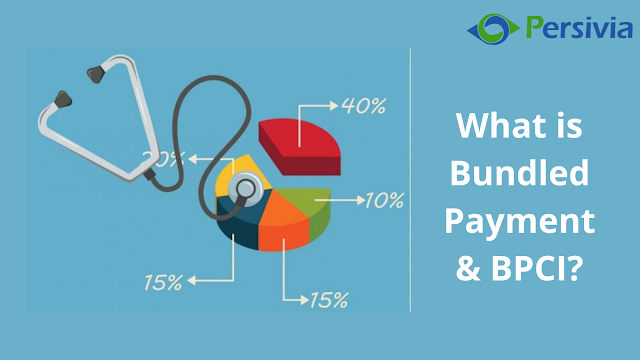The Centers for Medicare & Medicaid Services (CMS), through the Center for Medicare and Medicaid Innovation (CMMI), and the other stakeholders are actively developing cost-cutting initiatives to curb unsustainable healthcare costs. In this context, CMS has created a Bundled Payment Program known as BPCI Advanced.
A Bundled Payment
combines or bundles Medicare reimbursements to healthcare institutions for
several types of medical services supplied to the patient over a specific time
period. Bundled-payment programs reimburse hospitals, clinicians, post-acute
practitioners, and other care professionals (for home healthcare, diagnostics,
medical devices) for a specific duration of intervention. The BPCI Advanced
might involve a hospital inpatient hospitalization or an outpatient procedure.
Synopsis of the BPCI Model
The BPCI Advanced model
allows health professionals to receive incentive payments by cutting healthcare
spending while preserving the quality of coordinated care. The following
aspects distinguish the BPCI Program from previous bundling initiatives:
- It is
crafted on the basis of Voluntary Service.
- It is a retrospective bundled
payment and a specific risk profile, with a Medical Period length of 90
days.
- Starting with Model Year 4,
there will be 8 Clinical Episode Service Lines Groups (30 Inpatient, 3
Outpatient and 1 multi-setting Clinical Episode category)
- It qualifies as an Advanced
Alternative Payment Model (AAPM)
- Payment is linked to
performance on Quality Measures.
- Prior to each Model Year,
Preliminary Target Prices are published.
- Physician
Group Practices (PGPs) may be the primary stakeholder and in-power of
allocating financial risk among other stakeholders.
How does BPCI Advanced Works?
The program meets the
Advanced Alternative Payment Model criteria under the Medicare Access and
CHIP Reauthorization Act of 2015. (MACRA). Healthcare professionals are not
required to submit Merit-based Incentive Payment System (MIPS) reports for the
patients. Outpatient procedures are currently responsible for three Clinical
Episodes (CE), including percutaneous coronary intervention, cardiac
defibrillator, and back and neck procedures.
BPCI Advanced will
perform on the basic principle of total-cost-of-care, which means that the
total Medicare Fee for Services (FFS) spent on all products and services
provided to a BPCI Advanced Beneficiary during the CE, including outlier
reimbursements, will be included in the CE spending for uses of the Target
Price and settlement estimations, except if explicitly excluded.
BPCI & Risk Adjustment Coefficients
The risk adjustment
coefficients will not be recalculated during the Performance Cycle. Instead,
the risk adjustment factors from the baseline period (4 years) will be
re-utilized to the actual case mix that took place during the Performance
Cycle.




No comments:
Post a Comment
Please do not enter any spam link in the comment box